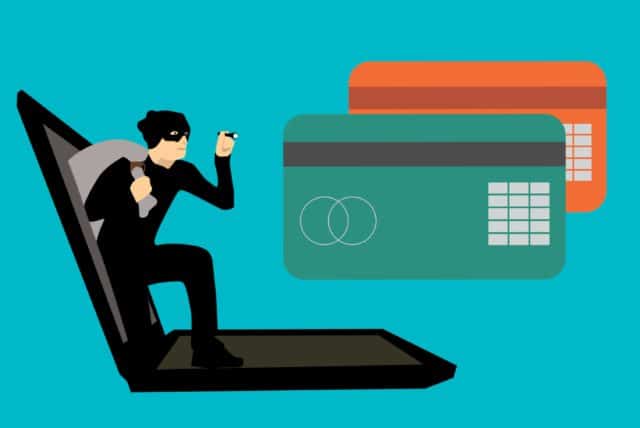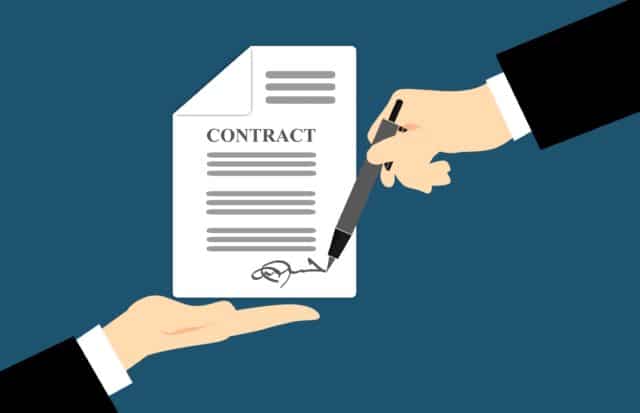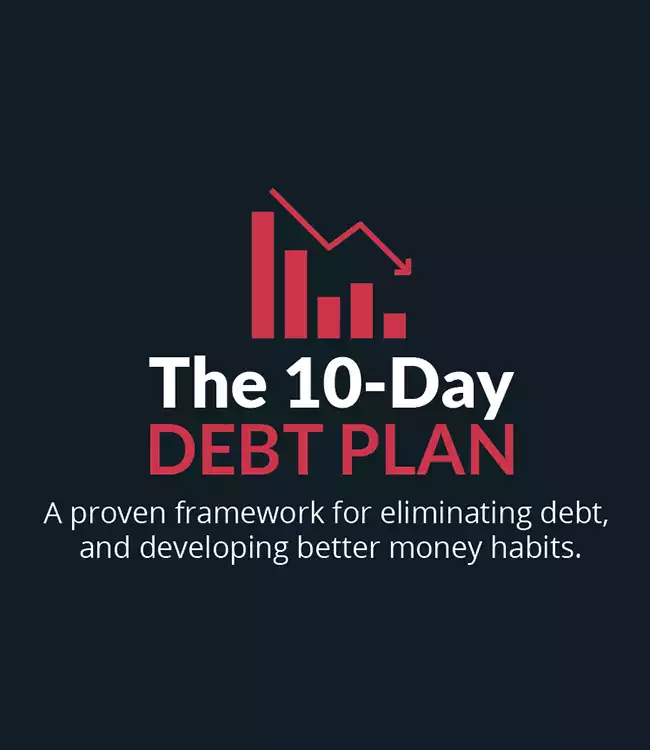If you don’t understand how to build credit, you’re leaving money on the table. I’m going to show you tactics that will improve your standing with lenders. Simply put, if you want lower interest rates and higher credit limits, you’ll love this post. Let’s get started.
The three major credit bureaus – Equifax, Experian, and TransUnion – have more impact on your life than you realize. The credit scores these companies compute dictates your ability to refinance student loans, get a car loan, or buy a house.
Credit scores are kind of like relationships. It’s much easier to nurture and develop it from the start then it is to fix once you mess it up.
There’s always a way up though. If you’ve already run into trouble, you can still fix bad credit with the right habits and attitude.
Building a good credit score is essential to set yourself up for success. We’ve laid out five simple tips anyone can use right now, regardless of whether you’re just starting your journey or trying to rebuild your credit.
How Does Credit Building Work?
Tips to build a good credit history will make a lot more sense if you understand how the whole credit scoring system works.
Credit bureaus collect data on your ability to manage loans and credit. An algorithm uses this data to dictate your credit score on a scale of 300 (poor) to 850 (excellent). The two largest scoring models are your FICO score and VantageScore.
A score of at least 760 is what is known as an “excellent score”. This is what gets you the best interest rates, access to loans and all the other perks of being considered a trustworthy borrower. We want to get you to the excellent range.
The Rules of the Game
Let’s check out the primary factors that go into how your score is computed:
- On-Time Payments: The algorithm needs to know you are a reliable bet to make your monthly payments. This is probably the single largest factor driving your credit score.
- Credit History: A credit score is like a fine wine, only without the intoxicating fun and cache. The longer you have established credit, the better your score will be.
- Credit Utilization: That’s a fancy way of noting how much credit you’re using. Responsibility is more than monthly payments. The algorithm will show you’re overextending yourself if you use more than 30% of your available credit.
- Recent Inquiries: Every time you apply for a credit card or loan, the lender runs an inquiry for your report. Too many inquiries in a short amount of time is another risky indicator you’re overextending yourself and will ding your score.
- New Accounts: Opening an excessive amount of new credit accounts in a short period can also hurt you. Have you noticed a theme? All actions that may indicate you are spending more credit than you can afford will hurt your score.
- Available Credit: The amount of credit you have access to (or your credit limit) will increase your score. The bigger the credit line lenders are willing to give you, the higher your score will be. You won’t be getting much to start when you’re building credit. This grows over time.
Five Simple Ways to Build Credit
So let’s see, to build good credit you need to get a high amount of credit, but not apply for lots of credit, and when you do apply make sure to space your requests out over time. Oh, and then don’t use too much of it, never get rid of it and, always, always, make payments on it.

I know, I know. It’s easier than it seems. Building good credit can actually be an easy personal finance tool. You don’t need a lot of money in your bank account. It’s just about learning how the game works and then playing it in your favor.
Your score will start climbing to the excellent range with simple practices and habits you can make a part of your daily life.
Our goal is to work the credit score algorithm in your favor. If you know what goes into a score, you can control what the algorithm says about you.
1. Start Today
Don’t wait until tomorrow to start building your credit history. I’d almost encourage you to quit right here and go build credit up if there wasn’t so much good information awaiting.
Your credit score improves with time. The rest of these tips will set you up for success, but the easiest thing you can do is to start right now.
2. Know Your Score & Check for Fraud
You need to figure out where you’re starting out before you can start building to where you want to go.
Get yourself a Credit Karma report to see your most recent score and an overview of what’s factoring into it. This is a super helpful tool that you should keep in your holster next to an annual trip to annualcreditreport.com.
This website is the source for a free copy of your credit report with a complete profile of your credit history.
Does your credit history suck? Don’t beat yourself up. The past is behind you and now you’re making better choices to change your circumstances.
Don’t know if you even have a credit score? You should still double-check your credit report in case of fraud. Identity theft is common these days, and your score could be dragged down by a hacker without you even knowing.
I assumed I had good credit until I discovered some jerk opened up a credit card in my name and left an unpaid $14 bill on my credit report for over six years.
I clearly wasn’t visiting annualcreditreport.com for a check-up. You need to protect yourself from fraud, watch your free credit score and make sure some digital Hamburgular isn’t sinking your good credit.
Responsible use doesn’t go far when someone else is using your credit card with no conscience.

Once you know your score, pin it up on your computer monitor or desk to keep good habits fresh on your mind.
3. Get a Credit Card
The most straightforward way to build your credit is with a credit card. It’s a plastic world, after all.
We’re inundated each day with commercials from premier credit card issuers. Cashback on all your purchases, travel miles to take you around the globe, getting into that teen heartthrob’s concert before anyone else.
You’ll eventually be eligible for these amazing perks, but you have to walk before you run. Check out our recommendations for first-time credit cards to see what’s right for you.
Most people will qualify for a “starter” card that offers a small amount of credit. These cards are tailored to college students and people with a small amount of credit.
If you don’t have any credit score or you’re rebuilding bad credit history, you’ll likely qualify for a “secured” credit.
Secured cards require an upfront deposit – say $150 – and are extended $150 credit via their card. You use it like any other credit card – buy things, make payments, incur interest if you have a balance – to establish a history of regular payments.
Your deposit is refundable once you have paid off all your purchases and you are typically offered an unsecured card (the official term for a traditional credit card) after a few months of good habits (depending on the card).
Starter and secured credit cards allow you to demonstrate you are reliable enough to make payments each month and are not overextending yourself, two of the critical factors in determining your credit score.
4. Use Your Credit Card the Right Way
There’s no reason to worry about using a credit card as long as you use it the right way. It’s all about using the algorithm’s criteria to your advantage:
- Pay off the full balance. On-time and every time. Never pay interest! Set up automatic payments so you can set it and forget it.
- Keep your spending low. Use your credit card for the regular purchases you budget each month: groceries, gas, bills. Don’t fall into the trap of maxing out your credit limit on big purchases. Keeping a realistic budget is a helpful companion to build credit.
- Don’t close any credit card accounts. It’s okay to move on from your starter card after a year or so. You’ll likely be able to qualify for a card with better reward options. Just keep your starter account active! Leave a monthly bill like your cell phone on the starter card so it continues to operate in your favor. Remember: longevity is key to the algorithm.
- Become an authorized user. Talk to a trusted family member or significant other about becoming an authorized user on one of their cards. Your credit score will be expanded to include the cardholder’s payment history, so make sure they are responsible and NOT a credit abuser. As long as they have a positive payment history and account in good standing, you can improve the algorithm’s scoring for your payment history, accounts, and available credit.

5. Do Not Take on Credit Card Debt to Build Your Score
We are dedicated to dispelling the myth that credit card debt is the key to building credit. You may have heard the best way to build credit is by buying a big-ticket item and paying it off in chunks to demonstrate you can make payments.
This does NOT affect the all-powerful credit score algorithm. It will only accrue large interest penalties that waste your money.
The best investment you can make is paying off your credit cards, paying off whatever debt you have. - Mark Cuban
Tweet ThisCredit cards are simply a tool. They can hurt you or help you depending on how you use them. Following the guidelines above will help you stay debt-free and conquer the algorithm.
This free course outlines a proven framework that thousands of people have used to eliminate their debt, develop better money habits, and start building a secure financial future.
Credit Card Alternatives for Building Credit
Credits cards are the most accessible way to build your credit, but there are other options to explore. That’s right: bonus tips. You can try these methods if you’re looking for a credit card alternative.

Credit Builder Loans
Check-in with smaller financial institutions like a credit union or community bank about loans specifically designed credit building.
Think of these loans like lay-away money or a de facto savings account. The lender agrees to give you a personal loan but you can’t access it until you’ve completed all the payments.
Your on-time payments are reported to the credit agencies, providing you the all-important payment history needed to establish and build a good credit score.
Use a Co-Signer
Banks and credit card companies will extend credit to most people that have a co-signer with excellent credit. The co-signer becomes liable for any debt you accrue, so make sure you communicate your plans for the credit or loan.
Give your parents a call for your next big purchase and let them know you’re serious about building your credit.
Get Credit for Paying Your Rent
RentTrack is an online service that reports your monthly rent payments to the major credit bureaus. This works in the same vein as our tip to use a credit card for your cell phone bill each month.
It’s only fair the credit bureaus recognize all your monthly payments. You don’t have to put down a security deposit and make small talk with your neighbors for a car loan, but they still count that each month.
This is a great way to build a credit history through a regular bill you have to pay anyways. Plus, you just use your checking account without having to take on new debt. And we don’t have to tell you not to make late payments!
Building Credit Takes Time
Building credit requires time, patience and consistency. There’s no need to stress or obsess over your credit score. Start today with these best practices and good habits and you’ll be building credit quicker than you think.
So, here’s to building excellent credit! (You should be toasting me now).


